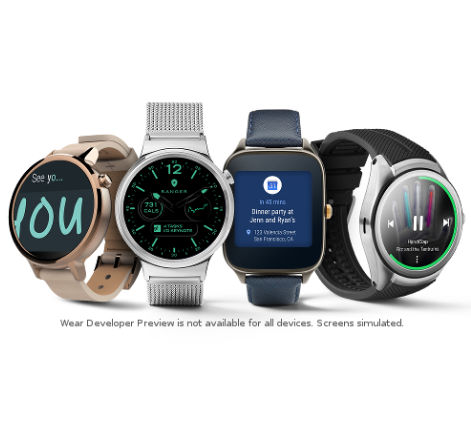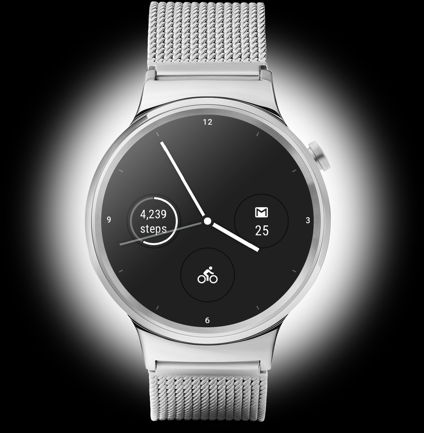| Android Wear 2.0 To Launch In February |
| Written by Mike James | |||
| Wednesday, 18 January 2017 | |||
|
It is difficult to get excited about smart watches. They present problems that make it hard to find a killer app. Android Wear 2.0 might just change that with its standalone, no phone needed, mode of operation.
One of the biggest problems with Wear is the lack of any leading hardware - there were hardly any new Wear devices over the holiday period. Partly this is caused by the upgrade to Wear 2.0, but it is also a sign that the market lacks enthusiasm. Samsung hasn't helped the situation with its adoption of Tizen while other manufacturers have put forward good hardware reasons for not introducing new models. Put simply - it seems to be only Google pressing ahead with Wear. The OS has been redesigned, more than once, in response to developer comments. It delayed the launch of Wear 2.0 in September 2016 because of negative developer feedback and now it seems that early 2017 is the date for the final roll out. The key feature of the new OS is that it can run apps without the support of an Android phone. The Wear 2.0 web page also introduces some interesting jargon: "Get ready for the next version of Android Wear! Support stand-alone Wear devices and apps. Create enhanced user interaction and glanceable experiences. Test your apps on Wear devices." "Glanceable experiences" is something to think about. The standalone feature means that the watch can connect to the network without going though a phone: "Since Android Wear apps will work independently of phone apps, Android Wear's network access will no longer require the Wearable Data Layer API. Android Wear apps will have the ability to make their own network requests. Additionally, they will be able to directly use Google Cloud Messaging."
Another interesting point is the range of inputs:
Yes, the last one is an onscreen keyboard. My fingers just aren't that small. Given the success of Alexa in the form of the Echo and the Dot hardware perhaps dictation or voice input is the key to making wearables a viable computing device. Finally I have to share with you another masterpiece of jargon creation: "A complication is a feature of a watch face that displays more than hours and minutes, such as a battery indicator or a step counter. The Complications API thus helps watch face developers create visual features and the data connections they require." It brings a whole new meaning to "my UI is complicated".
So will Wear 2.0 make a difference? My feeling is that not many programmers are convinced that smart watches are the new frontier - voice input probably is - but do they fit together? It is clear that Google hasn't given up on Wear and while it keeps pushing there is always a possibility that something magic will happen. Google is planning to launch two new watches to run Wear 2.0 and a lot depends on how good and how much these are. A "do it all" watch that was reasonably priced might just make users give it a try. For the moment, unless you have an idea that you are convinced the world needs or wants, I'd stand on the sidelines and watch what happens. You can download and use the preview at the moment to get ahead before the final version is launched.
More InformationAndroid Wear 2.0 Developer Preview https://developer.android.com/wear/preview/index.html Related ArticlesPebble Taken Over By FitBit - Developers & Users Abandoned Android Comes To Wearables And Watches
To be informed about new articles on I Programmer, sign up for our weekly newsletter, subscribe to the RSS feed and follow us on Twitter, Facebook or Linkedin.
Comments
or email your comment to: comments@i-programmer.info |
|||
| Last Updated ( Wednesday, 18 January 2017 ) |





